Panamanian Jade Manor Rosa Coffee Bean competitive Price Red Standard Green Standard Blue Standard comparison of Rosa Flavor Flavor
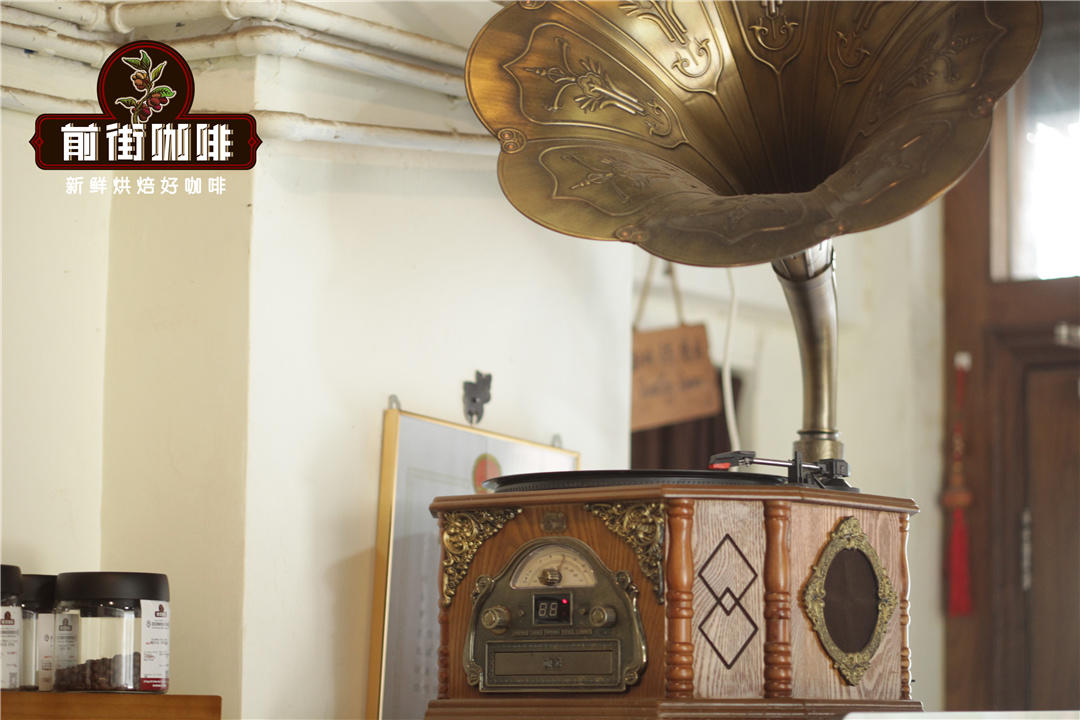
Jade Manor, the most representative manor in Rose Summer Coffee, is not only the discoverer of Rose Summer Coffee beans, but also the promoter of Rose Summer Coffee. From their launch of Rose Summer Coffee, we can see that they attach importance to Rose Summer and the guarantee of its quality.
There are three different grades of rose summer coffee beans on the front street coffee bean list. Some guests will ask why there are so many of the same types on the shelves.
Every bean on the shelves of Qianjie coffee is carefully considered and carefully selected, not only from the information of the producing area, the adjustment of the baking curve, the cup test and cooking taste, and so on, let Qianjie coffee fully understand the information of a type of coffee beans, and the most important reason for getting on the shelf is whether the flavor of this bean is obvious enough and whether it is prominent or not. In the three rosy summers of the jadeite manor, the main tone is indeed very similar, but it is more like a step-by-step increasing relationship. The blue standard is the basic style of the jadeite manor, the green standard is the advanced style, and the red standard is the top level in the rose summer. As a result, their prices are also increasing step by step. So Qianjie put these three rose summer on the shelves in the hope that the majority of coffee lovers can see the flavor of rose summer.
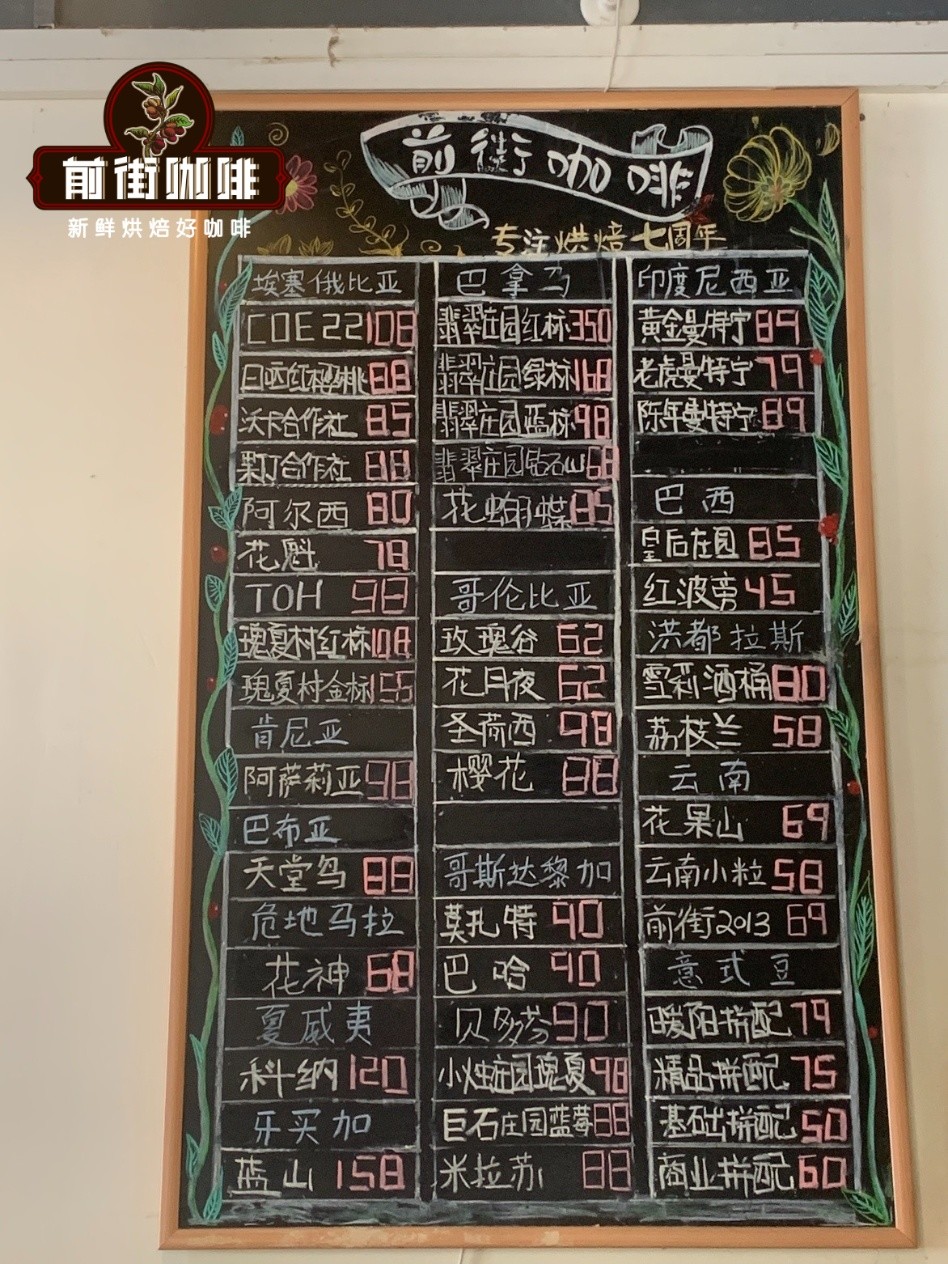
Introduction to Panamanian coffee
Panama is bordered by the Caribbean Sea to the east, the Pacific Ocean to the west, Costa Rica to the north and Colombia to the south. It is an important isthmus connecting North and South America. The finest coffee in Panama (Panama) is grown in the west of the country, near Costa Rica and the Pacific Ocean. The microclimate of the highlands is the most important resource that makes Panamanian coffee unique. Cold air flows through the Central Mountains and converges above 6500 feet, creating a variety of microclimates in the Poquet Boquete and Volc á n-Candela areas, making it a major producer of Panamanian coffee. These unique coffees are grown in nutritious and balanced land located in the Baru volcano region. The appropriate microclimate, soil, temperature and height of these highlands are suitable for sowing, planting and harvesting a variety of unique coffees.
Rose summer coffee
Panama is the birthplace of rose summer, and biologists have determined that Ethiopia is the birthplace of rose summer through genetic comparison. So it is inevitable that we compare the rosy summers of Panama and Ethiopia.
The front street compares the rose summer of Panama with that of Ethiopia. Although they both have excellent acidity and fragrance of flowers, they are obviously different from each other in terms of flavor description. The rosy summer of Panama has obvious aromas of jasmine, citrus (berries), rich honey, soft and comfortable as a whole. The rose summer of Ethiopia also has the fragrance of flowers, and the main tone is a very rich sense of juice (orange juice), full of Ethiopian explosive fruit flavor.
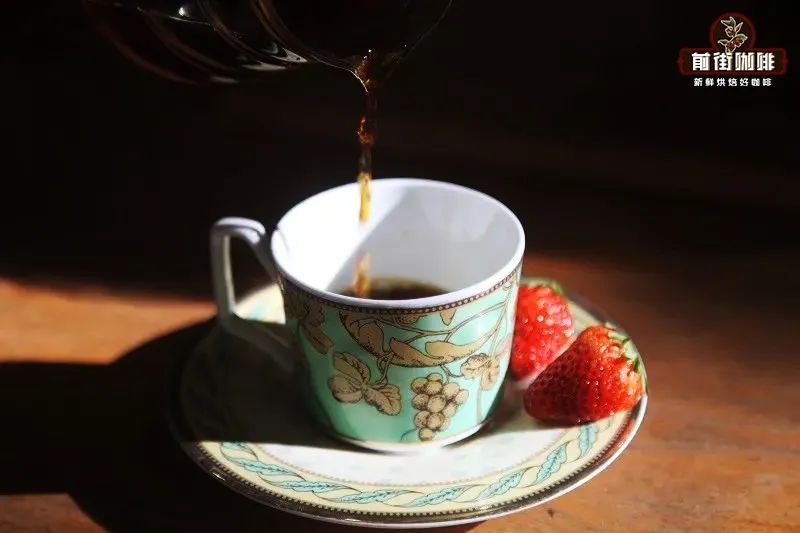
Rose summer is famous in Panama. Before 2004, no one knew the name "rose summer". When the jadeite manor planted this variety, it did not distinguish between the varieties and mixed with other coffee trees). Later, the jade manor found that the flavor of this variety was amazing, so it was screened and treated alone. It won the championship of BOP in 2004, and the name of rose summer also spread all over the world. Therefore, Qianjie will regard the flavor of Panamanian rosy summer as authentic.
How did Rose Summer "run" from Africa to Panama?
In 1931, plant experts sampled and studied in the Kafa forest in Ethiopia. The purpose of this sampling is to find out the best varieties of disease-resistant species collected in the Kafa forest during the leaf rust outbreak in 1860 (when tree species were collected and selected and screened in Kenya).
French biologist Jean-PierreLabouisse later verified the clue and found that the coffee beans originally marked Rosa Mountain came from different trees, which means it is not just a kind of Rosa coffee. The seeds marked with roses were shipped to Kenya for breeding and sample investigation in 1931 and 1932. It was sent to Uganda and Tanzania in 1936. In 1953, the Tropical Agricultural Education and Research Center in Costa Rica introduced the Rosa experimental species planted in Tanzania to China and put it on file under the serial number "T2722". In the 1960s, Mr. Don Patch of Don Patch Manor in Panama introduced the rose summer variety from the Center for Tropical Agricultural Education and Research in Costa Rica, initially on the grounds of resistance to leaf rust. So Don Patch also shared these varieties with other estates. Until the rosy summer of 2004 exhaled and raised his eyebrows.
The Jadeite Manor is located in the Pokuit producing area of Panama, which is an important coffee producing area in Panama, and many familiar coffee estates come from this area, such as Alida Manor, Catova Manor and so on.
The jadeite manor is finely divided into three plots: Jaramillo, Caas Verdes and El Velo. Each piece of land will be refined to small plots again.
High-quality Rose Summer is mainly produced in two plots: Jaramillo and Caas Verdess.
The annual rainfall of Jhala Miyou (Jaramillo) is 4000ml, the average temperature in daytime is 19-25 ℃, the average temperature at night is 11-15 ℃, and the average altitude is 1600-1700m.
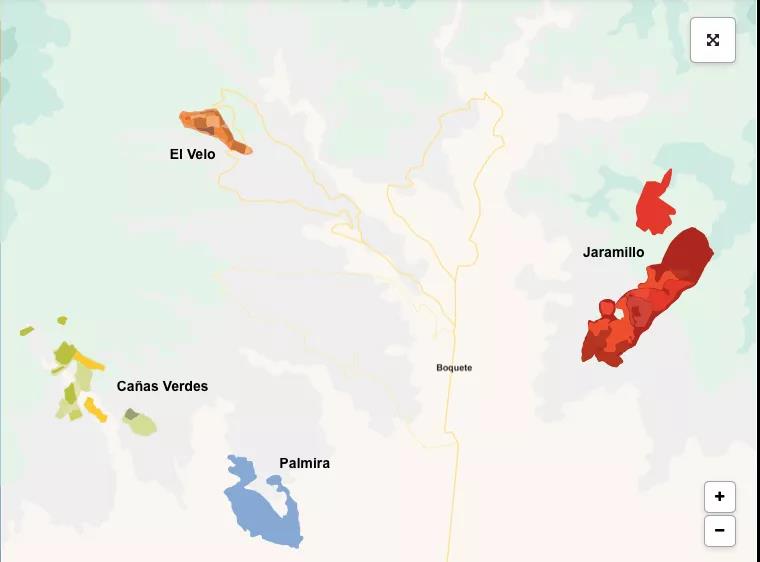
The annual rainfall of Caas Verdess is 3500ml, the average temperature in daytime is 16-23 ℃, the average temperature at night is 10-15 ℃, and the average altitude is 1600-1800m.
El Velo is the latest acquisition of the Jade Manor, with an average elevation of 1700-1900m. In addition to planting Rosa and Kaduai, the site also has a small number of other exotic species, such as Laurina, Pakamara, Mocha and SL28.
The marketing strategy of Ruoxia classified Jadeite Manor is different from that of other manors. according to the cup test performance and the varieties and plots planted, it is divided into five brands. There are three brands of Rosa Variety: jadeite Special selection (Esmeralda Special), Private Collection (Private Collection) and Rosa 1500 (Geisha1500). Kaduai has two brands: Diamond Hill (Diamond Mountain grows) and Pamela (Palmyra).
First of all, we have to understand that the red, green and blue marks we call are only common names in Chinese (for popular and easy-to-remember names). In fact, they all have more foreign names.
Take our most people-friendly blue label, for example, its original name is "Geisha1500", because its logo is blue background, so it is called blue standard for short. The Blue Standard is defined as Rose Summer Coffee with an altitude of about 1500 meters above sea level, which is mixed with the three sub-estates of the Emerald Manor, Region (Haramillo, Cannes Vidis, veil).
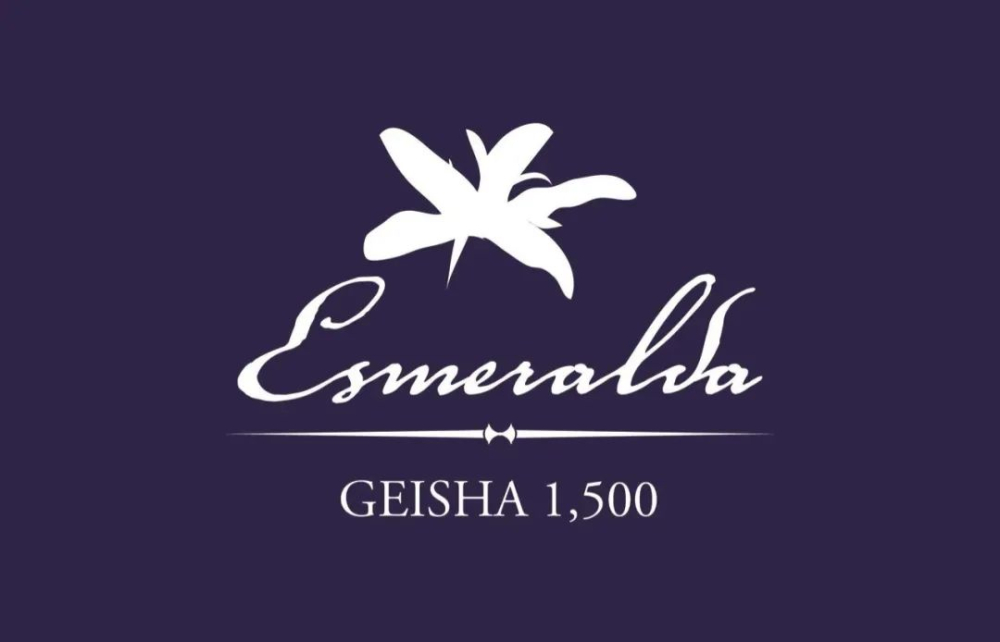
However, in the 2021 production season, the Emerald Manor announced that it would no longer launch the blue label series. We also see on the official website of the Jade Manor that the blue mark has been deleted in the product profile, and there are only red and green marks left in the rose summer category.

However, according to Qianjie, the 21-year-old 1500-meter Rose Summer (that is, the original blue standard) was sold in whole batches to a raw bean company, which launched a brand called "Las Rocas". Qianjie also confirmed the magnificent smell of jadeite manor in the sale of raw beans and cup tests.
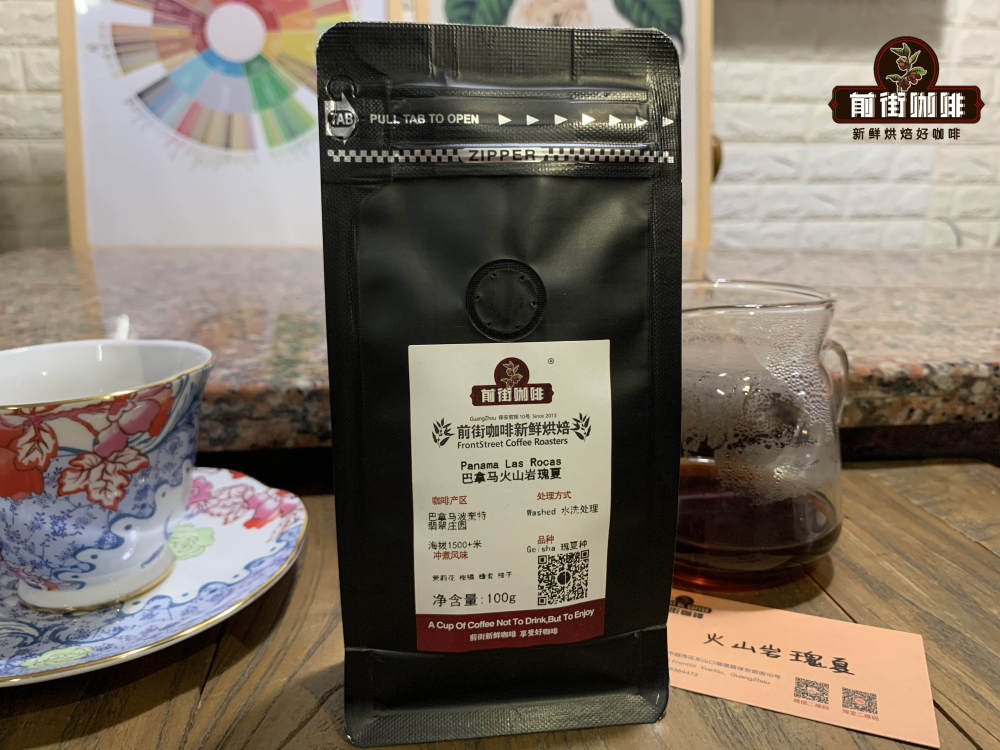
In the interactive map provided by the Emerald Manor, we can see the distribution of the micro-plots of the four sub-estates. when we zoom in on Haramillo, we can clearly see the names of the subdivided plots, and the plots marked with Geisha1500 produce blue marks.
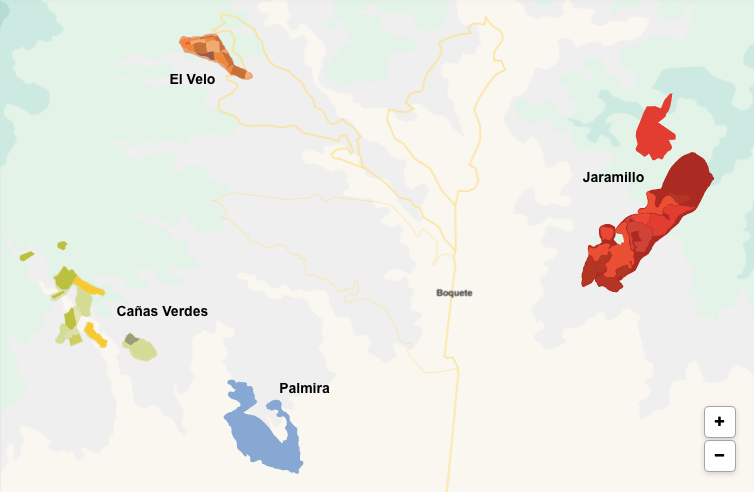
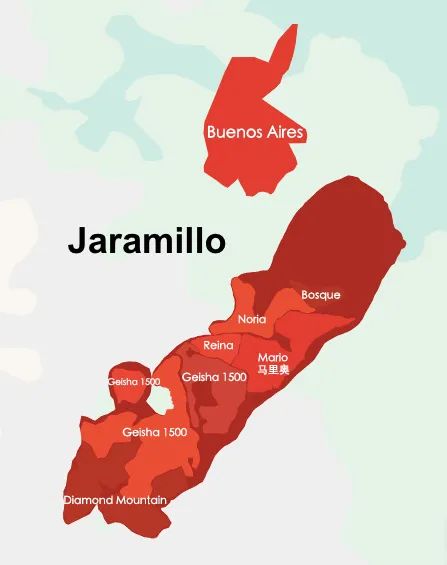
Then there is the current Rose Summer product line of Jade Manor, which is divided into red mark and green mark. In the same way as the blue standard, it is also commonly known as derived from the background color of their logo. The red sign is officially called "Esmeralda Special" and translated into Chinese as "Jadeite Special selection". Here you can see the introduction of their product on the official website of the Emerald Manor.

To put it simply, the Feicui Special Series is the highest quality rose summer coffee beans sold in the Jadeite Manor, which grows in detailed plots of 1600-1800 meters above sea level, and the cup test of each batch must be more than 90 points. Usually this series comes from two sub-estates, Haramillo and Cannes Vidis (the Veil Manor has also produced a series of red marks, but this estate is mainly used as a commercial feasibility exploration, growing a lot of coffee varieties).
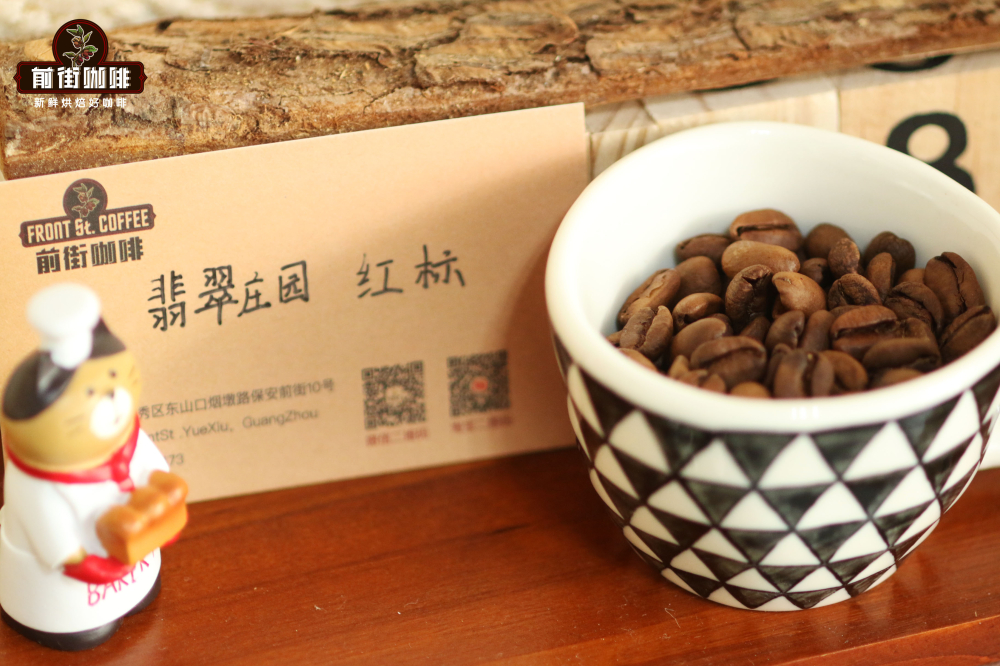
Another feature of the red label batch is that each batch has a separate number, while all the coffee beans in a batch come from a small plot. For example, Qianjie's red sign this year comes from the Mario plot. In this way, buyers can choose the batch that suits them according to the preference of subtle flavor. (the buyer here is the buyer who deals directly with the Jade Manor.) the official name of the green label is "Private Collection", which is translated into Chinese as "private collection". Don't understand this bean in Chinese, it's just the name of a product line.
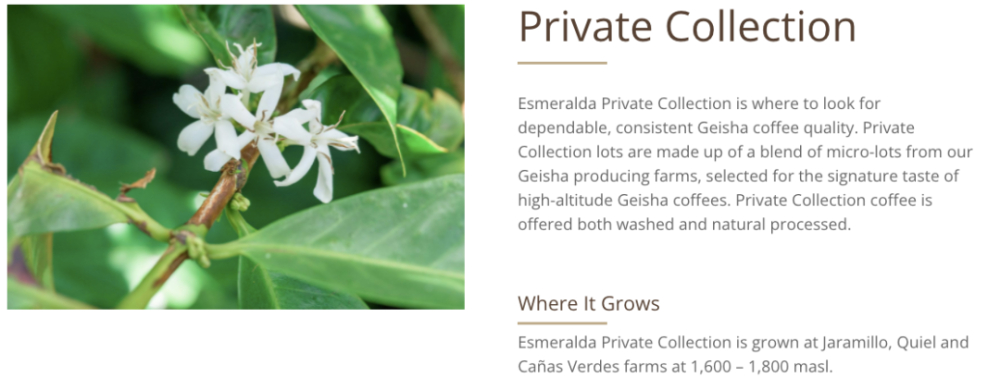
According to the introduction of this series by Jadeite Manor, it can be roughly understood that this series does not emphasize detailed plots like the red mark, but emphasizes the iconic flavor of Rose Summer Coffee at high altitude. This series is a mixture of batches produced by various detailed plots. In fact, the green mark can be roughly understood as a red sign regardless of land parcels. )
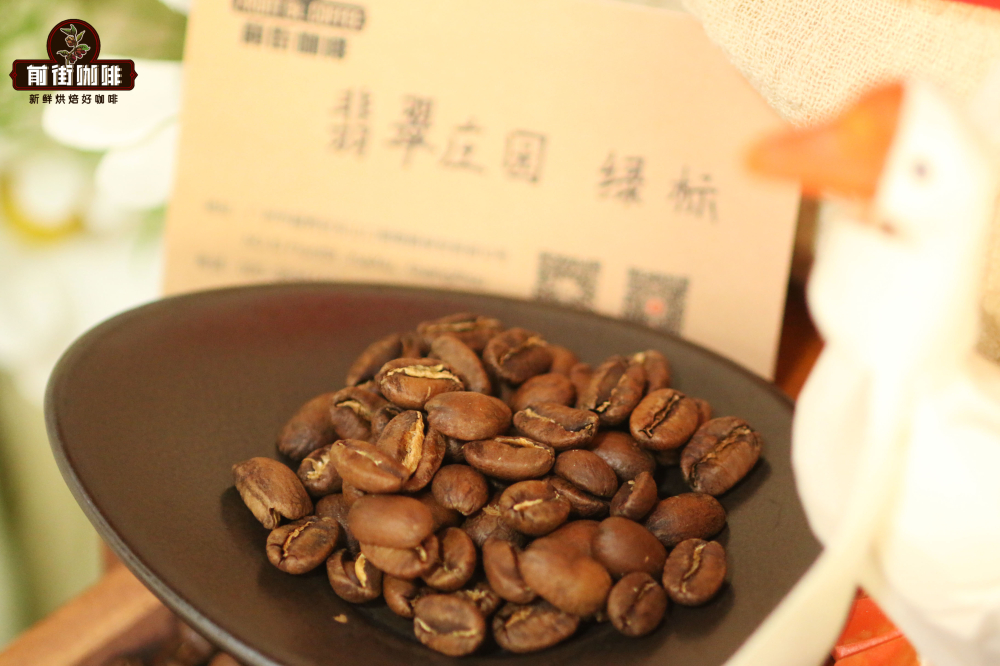
Some people will have doubts, that is, the red bid and bidding of the Jade Manor. Some people will wonder, isn't the red bid the bidding lot? Actually, it's not quite right. The red bid series of Jadeite Manor is divided into competitive bidding batches and non-competitive bidding batches. Bidding batches are sold by auction, not by bidding batches but by commodity pricing. Take the auction in 2021 as an example, bidding lots of 50 pounds each, a total of 50 lots, a total of 2500 pounds (1135 kilograms).
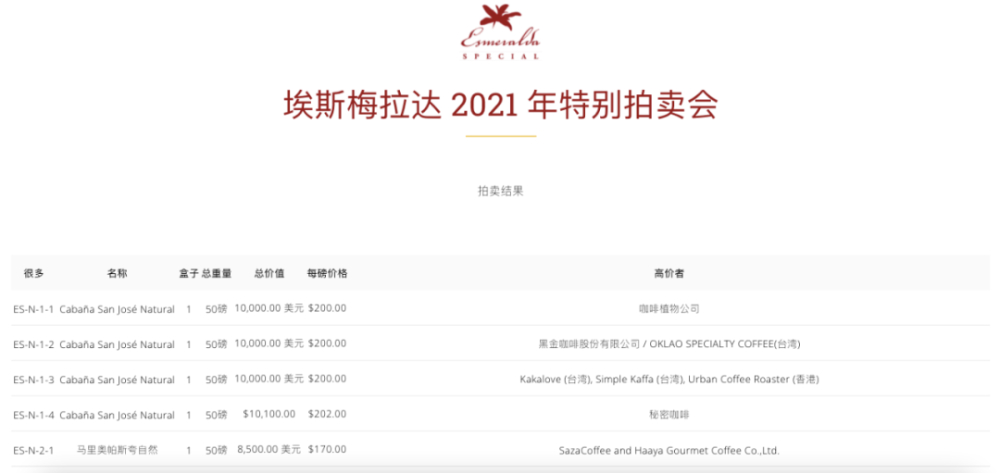
So will the competitive bidding batch in the red bid be better than the non-competitive bidding batch? if friends who are familiar with farm products know that this cannot be guaranteed, the only guarantee is that the competitive bidding batch must be more expensive than the non-competitive bidding batch.

. In fact, the Jadeite Manor also realized that this classification really makes it very difficult to figure out the context, and the Jadeite Manor also revealed that a clearer distinction will be made.
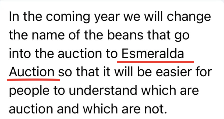
It probably says that the beans to be auctioned next year will be renamed "Esmeralda Auction" (jade auction), which should be translated as "jadeite auction". This "next year" is about 2022 this year.
It is recommended that Qianjie Coffee Bake these three different grades of Panamanian rose summer coffee beans, the main idea is to highlight the rich flower aroma and bright and changeable fruit acid characteristics, using light roasting method. However, Qianjie takes into account the different growth environment of each level, and the baking details also need to be adjusted accordingly.
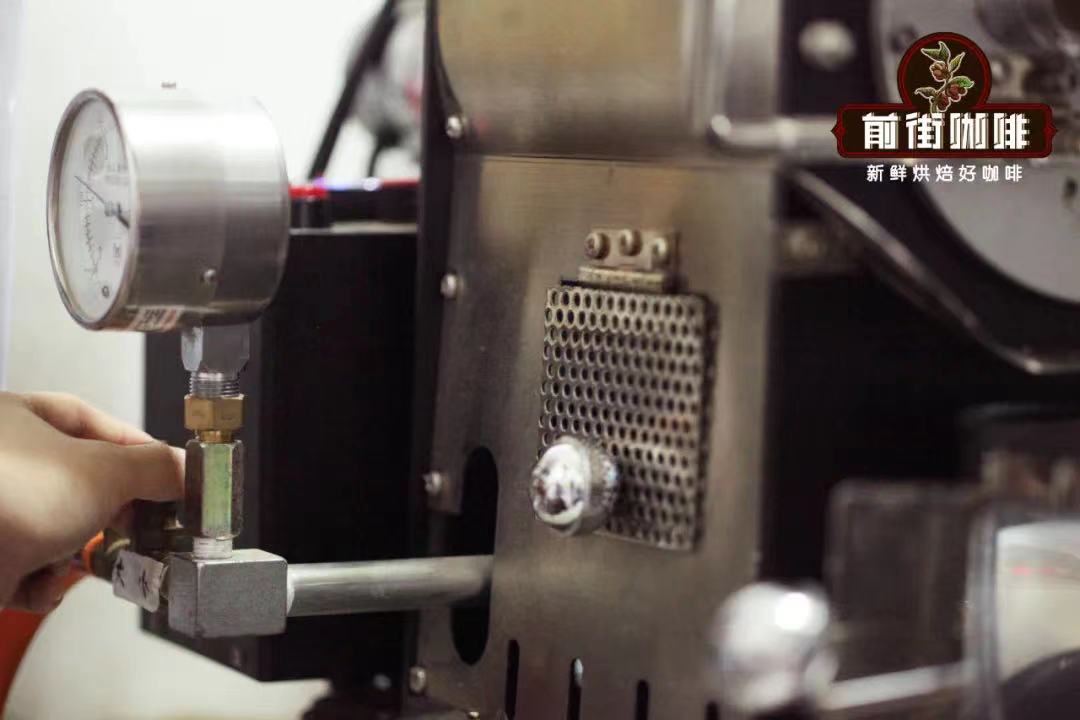
Red label Rose Summer
Furnace temperature 150 ℃, firepower 120, throttle open 3; tempering point 1: 36 ", furnace temperature 140 ℃, open throttle to 4, firepower unchanged; when furnace temperature is 147.6 ℃, bean meter turns yellow, grass smell disappears completely, and enters dehydration stage; when furnace temperature reaches 150 ℃, firepower is adjusted to 100, throttle remains unchanged.
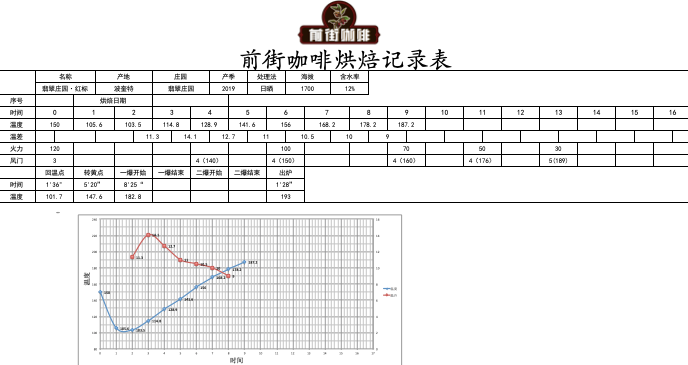
The smell of toasted bread has obviously changed to the smell of coffee, which can be defined as a prelude to an explosion. At this time, it is necessary to listen carefully to the sound of the explosion point, when the sound of the explosion point begins to explode, the throttle opens to 4, and after the explosion, the development of the ℃ after the explosion begins.
Green label Rose Summer
The furnace temperature is 160℃, the firepower is 110min, and the throttle is open to 3.5. when the furnace temperature is 140℃, the throttle is opened to 3.5. when the furnace temperature is 153.3 ℃, the bean meter turns yellow, the grass smell disappears completely, and enters the dehydration stage. When the furnace temperature reaches 161℃, the firepower is adjusted to 90, and the throttle remains unchanged.
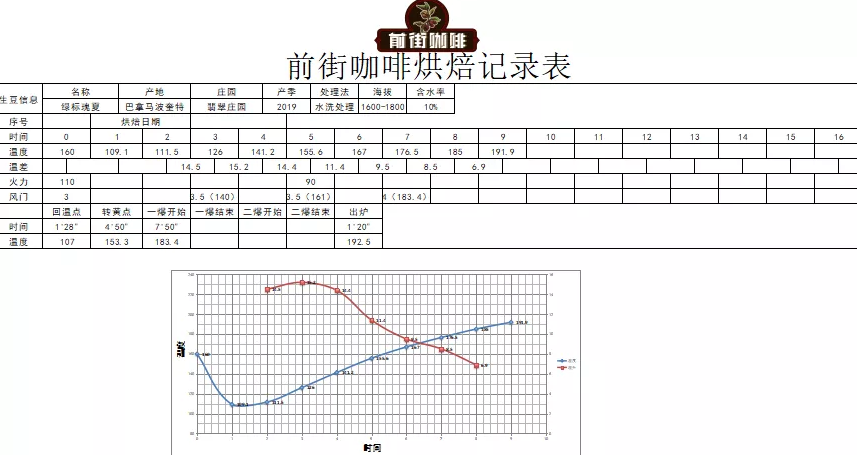
The smell of toasted bread has obviously changed to the smell of coffee, which can be defined as a prelude to an explosion. At this time, it is necessary to listen carefully to the sound of the explosion point, when the sound of the explosion point begins to explode, the throttle opens to 4, and after the explosion, the development of the ℃ after the explosion begins.
Blue label Rose Summer
Enter the bean temperature 180 ℃, turn yellow 5'20 ", 151.6 ℃, one burst point 8 minutes 39 ℃ 30", 181.8 ℃, develop 1 minute 28190 ℃ out of the oven.
Test the flavor by cup
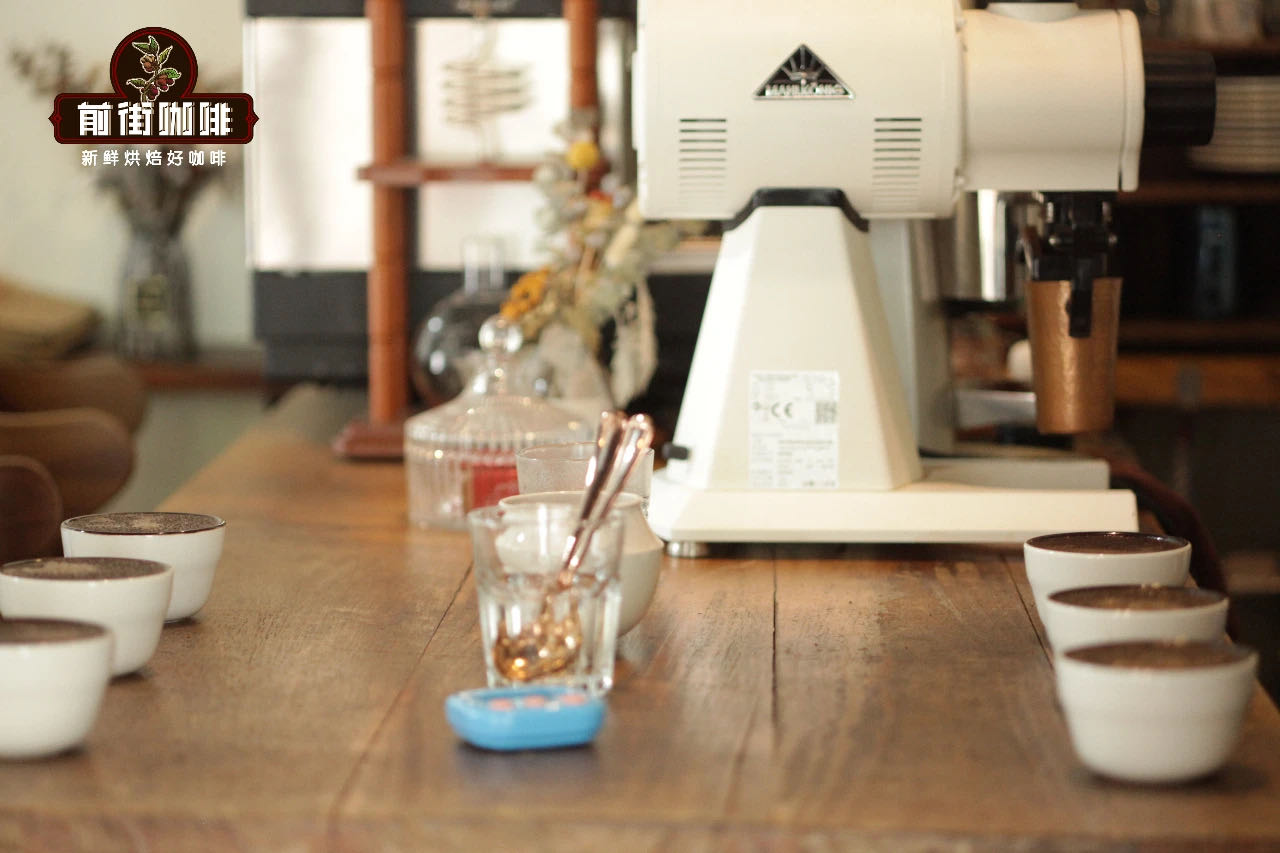
Red label Rose Summer
Dried incense: Jasmine, citrus
Wet fragrance: citrus, lemon, honey
Entrance: lemon, honey, berries, orange peel, mango, cream, citrus, tea
Green label Rose Summer
Dried incense: Jasmine, ginger
Wet fragrance: lemon, sweet orange
Entrance: lemon, orange, honey, cream, almonds, tea
Blue label Rose Summer
Dry fragrance: flower fragrance, citrus
Wet fragrance: citrus, lemon
Entrance: citrus, lemon, honey, nuts, tea
Cooking suggestion
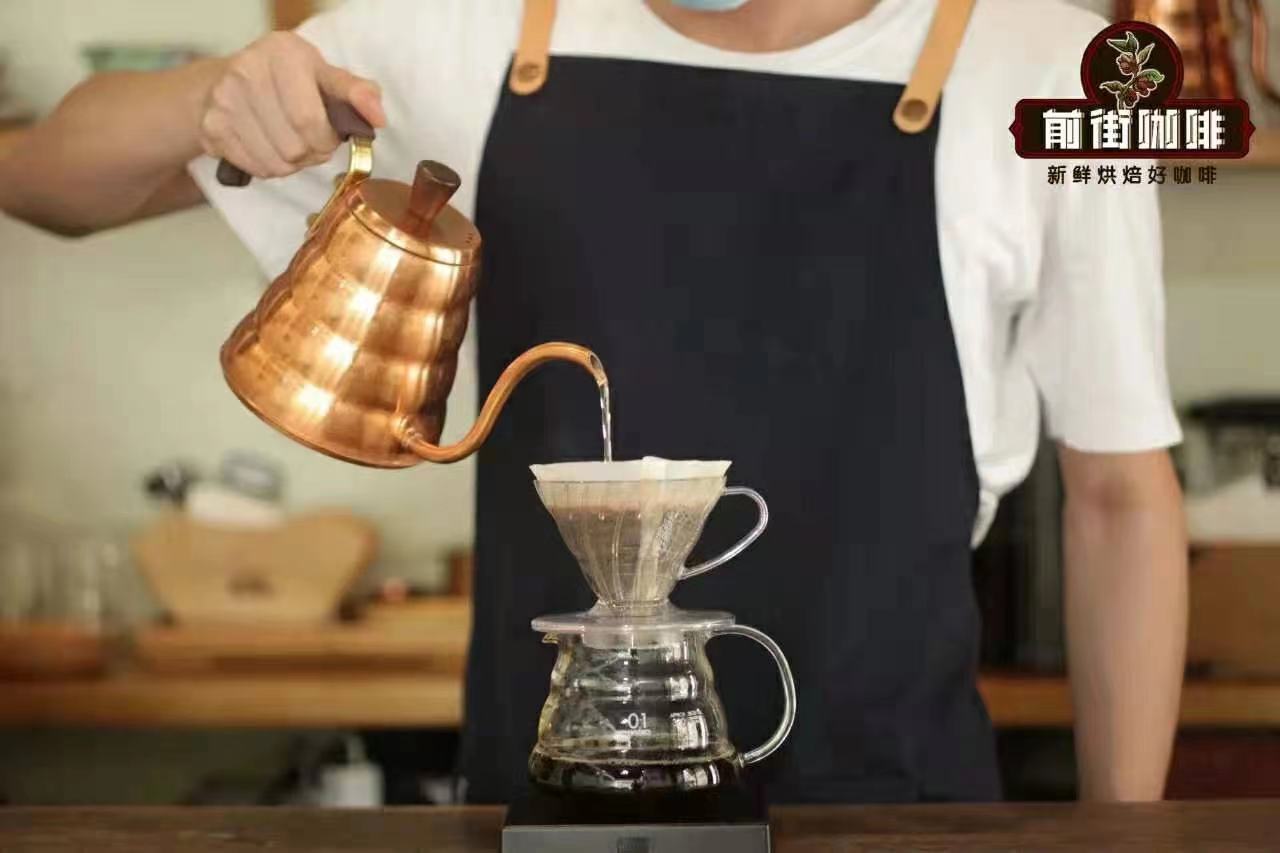
The recommended brewing parameters for Qianjie coffee are: Hario V60 filter cup, 90 ℃ water temperature, 15 g powder quantity, 1:15 powder-water ratio, grindability BG#4Q (the pass rate of Chinese standard No. 20 sieve is 80%).
Coffee beans are recommended to be freshly roasted, so that the flavor will be richer. The coffee beans shipped in Qianjie are all roasted within 5 days, because Qianjie is well aware that the freshness of coffee beans has a great impact on the flavor. The purpose of Qianjie roasting is "freshly roasted coffee", so that every guest who places an order is the freshest coffee when he receives it. The bean cultivation period of coffee is about 4-7 days, so when the guest gets it, it is the time when the flavor is the best.
In the front street, considering that these Panamanian rose summer coffee beans are lightly roasted, and the dissolution rate of light roasted beans is lower than that of deep roasted beans, in order to ensure that the flavor of Rosa can be fully extracted, higher water temperature is used for brewing. At the same time, a finer degree of grinding is also selected. So grinding this piece, Qianjie is determined by screening this method, according to the grinding advice provided by the American Fine Coffee Association SCA for hand-made coffee, Qianjie combined with the actual operation verification, using different grinding degrees to brew, the finished products have a significant gap, and the grinding degree of each coffee bean will be different, this is the significance of sifting. If you don't have a sieve at home, Qianjie Coffee suggests observing the speed of the water to judge that if the flow is too fast, it is coarse, and if the flow is too slow, it is fine.
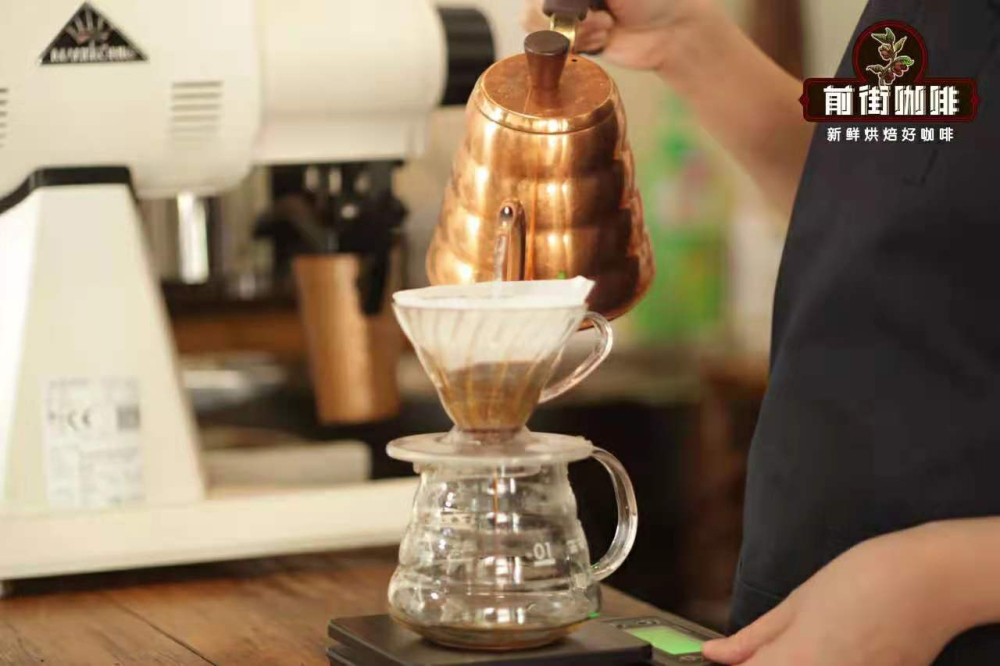
Washing and cooking technique
Qianjie coffee uses staged extraction, also known as three-stage brewing, steaming with 30 grams of water for 30 seconds, small water injection around the circle to 125 grams for stages, water level drop to 225 grams when the powder bed is about to be exposed, remove the filter cup when the water level drop is about to expose the powder bed, (steaming starts timing) the extraction time is 2 grams 3900 ".
Description of taste and flavor of Rosa coffee
Red mark: there are bright roses, citrus aromas, black rice, berries, apricots, compound fruits, honey, thick juice, rich flavor, sweet and obvious.
Green label: strong jasmine fragrance, high sweetness, citrus, berries, juice, cream, green tea, orange peel, cantaloupe, the overall flavor is rich, aftertaste, citrus lasting.
New blue label of volcanic rock: floral fragrance, soft sour notes of lemon and grapefruit in the entrance, sweet honey in the middle, sweet oolong tea and brown sugar at the end, clean and bright taste.
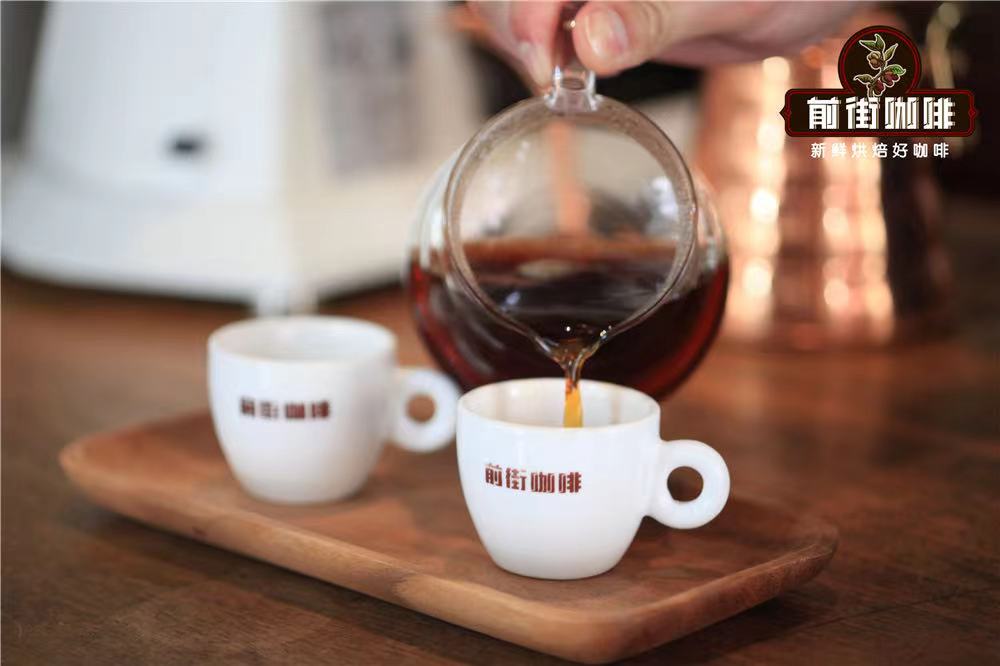
Professional coffee knowledge exchange more coffee bean information please follow the coffee workshop (Wechat official account cafe_style)
For more boutique coffee beans, please add private Qianjie coffee on Wechat. WeChat account: kaixinguoguo0925
Important Notice :
前街咖啡 FrontStreet Coffee has moved to new addredd:
FrontStreet Coffee Address: 315,Donghua East Road,GuangZhou
Tel:020 38364473
- Prev
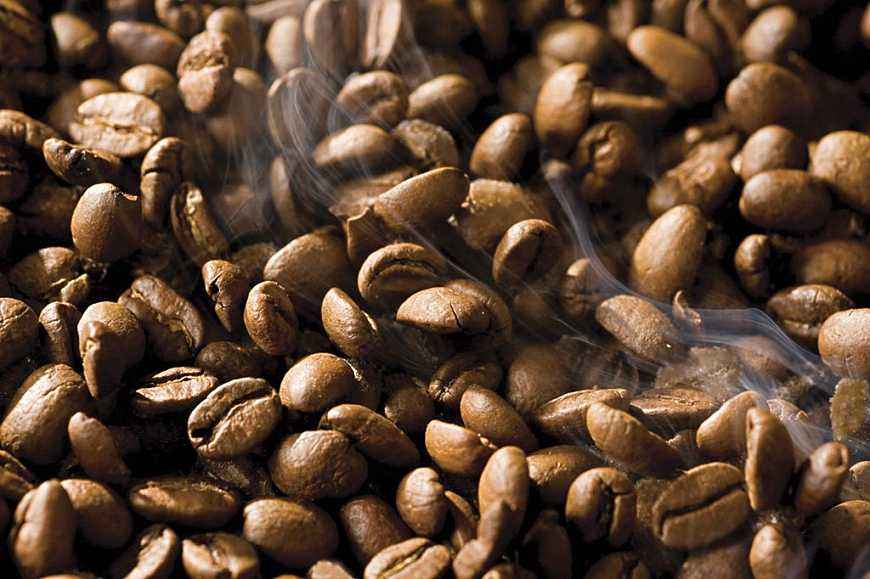
Bolivian Coffee Takesi Snow vein Manor Coffee Bean Flavor description
Follow the caf é (Wechat official account vdailycom) found that the beautiful cafe opened its own small shop, Takesi Snow vein Manor, where the average temperature is only 15 degrees C, the water source comes from alpine melting snow, no pollution, and there is fertile volcanic soil, more than 2000 meters above sea level, the coffee planted is full of various aromas and full of sweetness. She is the 2009 Bolivian champion Takesi.
- Next
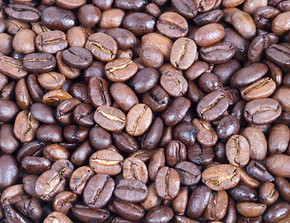
The price of Rosa coffee beans
Following Cafe Review (official account vdailycom of Wechat) found that Beautiful Cafe opened a small shop of its own: Geisha was discovered in the rose forest of Ethiopia in 1931 and sent to the Coffee Research Institute in Kenya; it was introduced to Uganda and Tanzania in 1936, Costa Rica in 1953 and Panama from Dongba Seven Farmers in the 1970s.
Related
- Detailed explanation of Jadeite planting Land in Panamanian Jadeite Manor introduction to the grading system of Jadeite competitive bidding, Red bid, Green bid and Rose Summer
- Story of Coffee planting in Brenka region of Costa Rica Stonehenge Manor anaerobic heavy honey treatment of flavor mouth
- What's on the barrel of Blue Mountain Coffee beans?
- Can American coffee also pull flowers? How to use hot American style to pull out a good-looking pattern?
- Can you make a cold extract with coffee beans? What is the right proportion for cold-extracted coffee formula?
- Indonesian PWN Gold Mandrine Coffee Origin Features Flavor How to Chong? Mandolin coffee is American.
- A brief introduction to the flavor characteristics of Brazilian yellow bourbon coffee beans
- What is the effect of different water quality on the flavor of cold-extracted coffee? What kind of water is best for brewing coffee?
- Why do you think of Rose Summer whenever you mention Panamanian coffee?
- Introduction to the characteristics of authentic blue mountain coffee bean producing areas? What is the CIB Coffee Authority in Jamaica?

